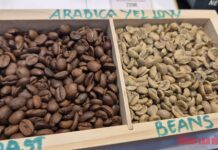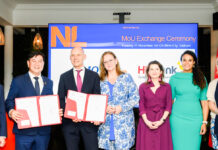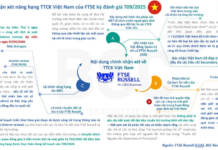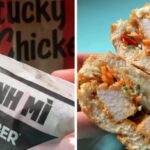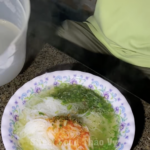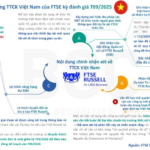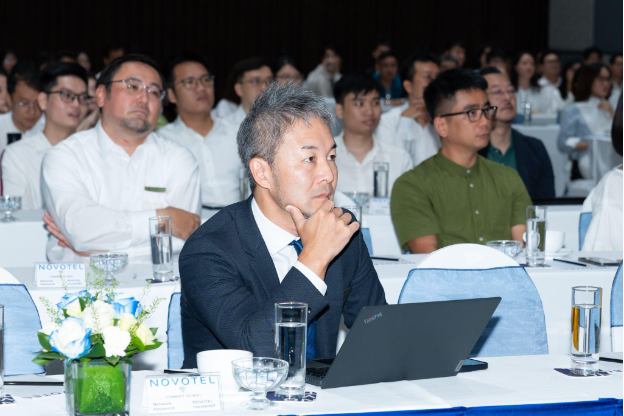In this context, Mrs. Nguyễn Thị Kim Oanh, the founder of Wrap&Roll (predecessor to RedWok) and Vietnam’s first Sports Beauty Queen in 1993, chose to return to her roots with a new restaurant named One River, located in the heart of Ho Chi Minh City.
Her comeback reflects a significant shift: from expansion to streamlining, from a chain to a singular destination experience.
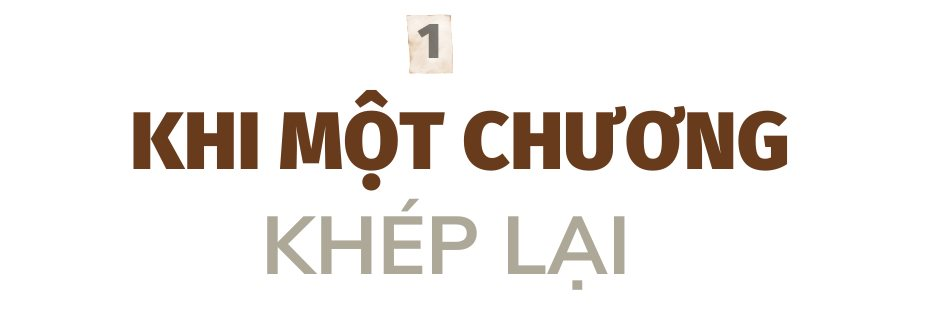
In September 2025, Mekong Capital’s website featured a brief announcement: Mekong Enterprise Fund III (MEF III) had fully divested from RedWok, the company behind three F&B brands: Wrap&Roll, Quán Ụt Ụt, and Bia Craft. No press conferences, no lengthy statements—the exit was executed with the typical private equity finesse: swift, silent, and decisive.
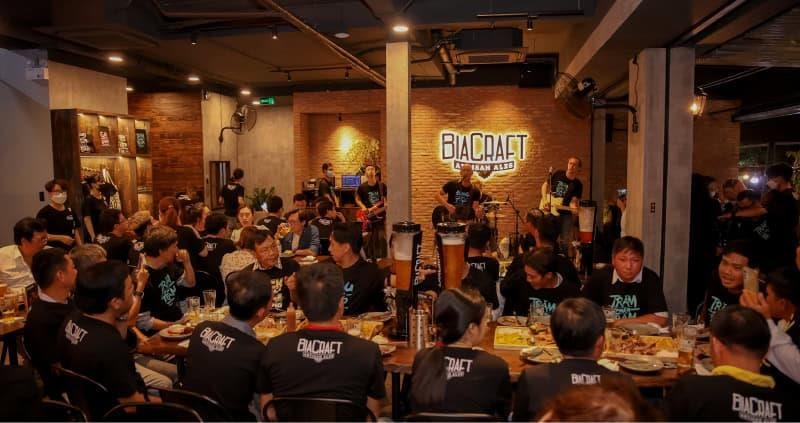
Bia Craft, a RedWok brand. Photo: Mekong Capital
For Mrs. Oanh, the founder of Wrap&Roll nearly two decades ago, this moment marked the end of a ten-year journey since she signed the agreement to sell 70% of her shares to Mekong Capital. “It’s interesting how it aligns. Wrap&Roll began talks with Mekong in early 2015, and the deal was finalized in late 2016. Now, it’s also the time for me to re-enter the F&B industry.”
From the start, she viewed Mekong’s investment as “a new chapter for both myself and the company.” After the acquisition, she remained as CEO for a short period before transitioning to oversee international franchising.
“I made a promise to myself and to Mekong Capital to fully focus on expanding Wrap&Roll internationally… bringing Wrap&Roll to China and Singapore through franchising.”
In 2020, she completely stepped away from RedWok’s operations but remained on the board. Only in the past two years did she officially divest her remaining shares, marking the complete closure of a decade-and-a-half journey with Wrap&Roll.
That journey left her with mixed emotions. “The dream of continuing to bring a Vietnamese culinary brand abroad was halted,” she said. Although the franchise model had brought Wrap&Roll to Shanghai and Singapore, the project was discontinued when Mekong’s strategy shifted entirely from their initial investment and promises to the founder.
She also regrets the fate of her team, who had been with her for nearly a decade: “I believe they deserved to work and thrive in a professional, cohesive environment, creating meaningful value for a culinary brand with far-reaching ambitions.”
This regret fueled her desire to return, “to finish what I had dreamed of and longed to do.”
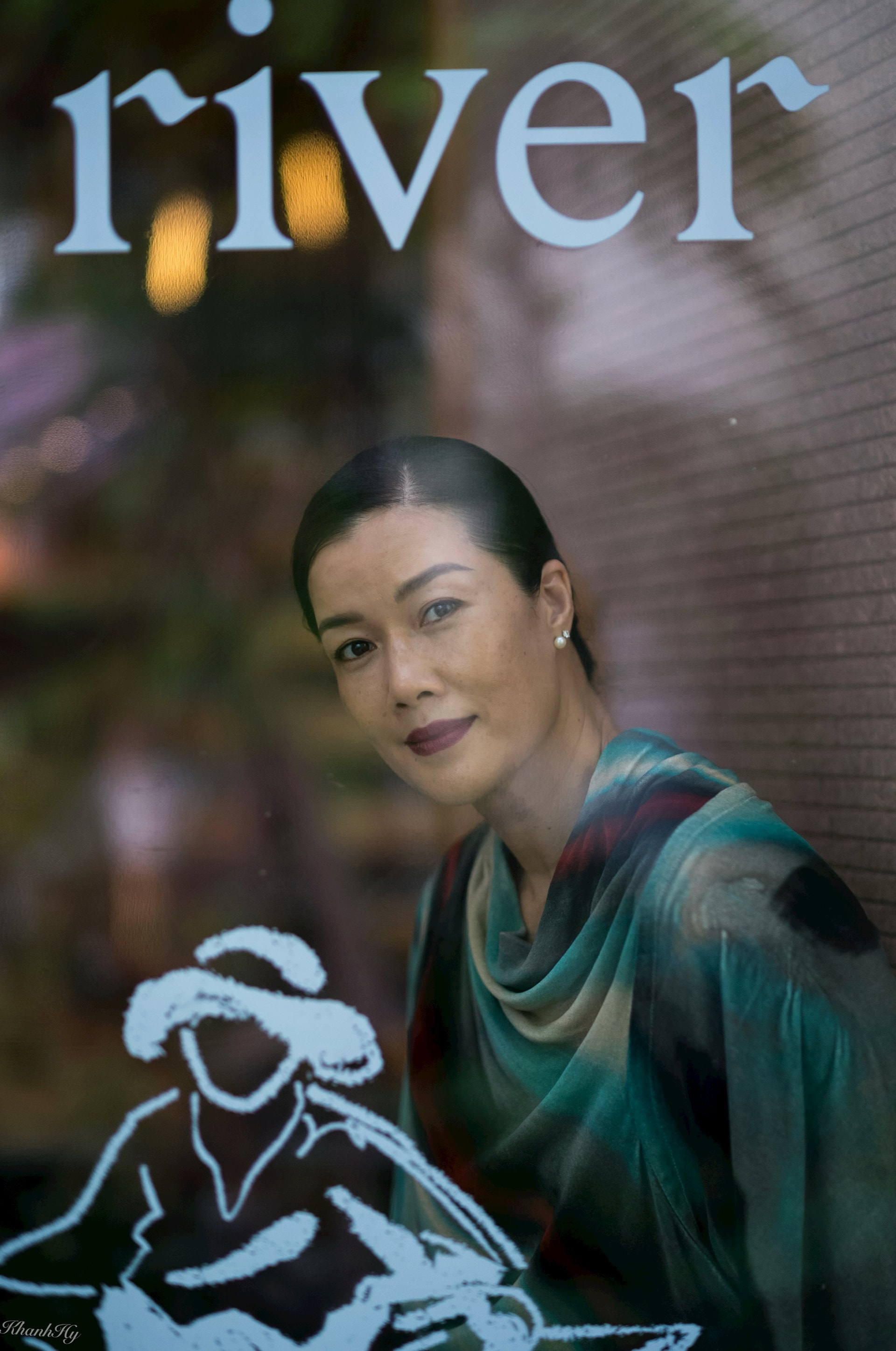
Mrs. Nguyễn Thị Kim Oanh, founder of Wrap&Roll
Now, with Mekong’s complete divestment, she has opened One River—a premium casual dining restaurant with approximately 70 seats, covering around 600 m². It features a long bar, an open kitchen, and a small garden growing Mekong Delta spices.
“The deal began quietly and ended quietly,” she said. “But perhaps it’s consistent, like the flow of every journey.”
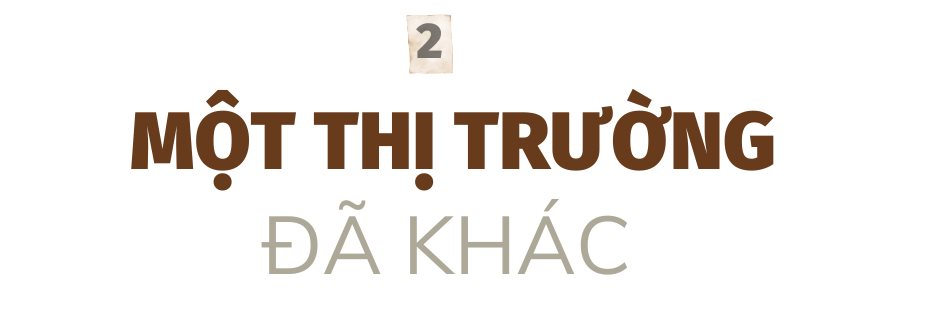
After 15 years with Wrap&Roll, Mrs. Oanh spent nearly five years away from the F&B industry. “Personally, I missed the profession. I missed the feeling of making daily decisions, both big and small. The restaurant industry is like raising a child, constantly keeping me on my toes. Perhaps the calm and stability of those five years made me feel bored with myself.”
She observed the F&B industry post-COVID-19 and saw a reversed landscape: “There’s an overarching sense of fear. Too many models are focused on delivery, pushing everything toward industrialization.”
According to the e-Conomy SEA 2024 report by Google, Temasek, and Bain & Company, Vietnam’s transportation and food delivery market reached $4 billion in 2024, a 12% increase from the previous year. Another report by Momentum Works (Singapore) estimated that the online food delivery segment grew by 26%, from $1.4 billion to $1.8 billion, with Shopee Food and GrabFood capturing about 95% of the market share.
This growth indicates a significant shift in consumer behavior, with dining moving from a collective experience to a personal convenience on a smartphone screen.
“Consumers have a new way of eating—at home, ordering in, and accepting food quality at just 2/3 of what it could be. That makes me sad,” she shared. “I rarely order food for delivery; I either cook or dine out.”
In her view, Vietnam’s F&B industry now faces a clear divide: on one side are large, standardized chains modeled after foreign concepts, and on the other are boutique restaurants with a personal touch. “They replicate Korean, Japanese, and Thai concepts… but I feel they lack individuality, and the culinary experience becomes generic.”
For Mrs. Oanh, the pandemic years significantly impacted culinary aesthetics. Convenience overshadowed experience; the rise of food delivery diminished access to culturally rich dishes. “Young people are tied to their phones, favoring convenience. But if this continues, the cultural stories within cuisine will fade away.”
This realization brought her a sense of professional responsibility: “I feel responsible. Having achieved success and luck in this profession, I must keep the flame alive for it.”
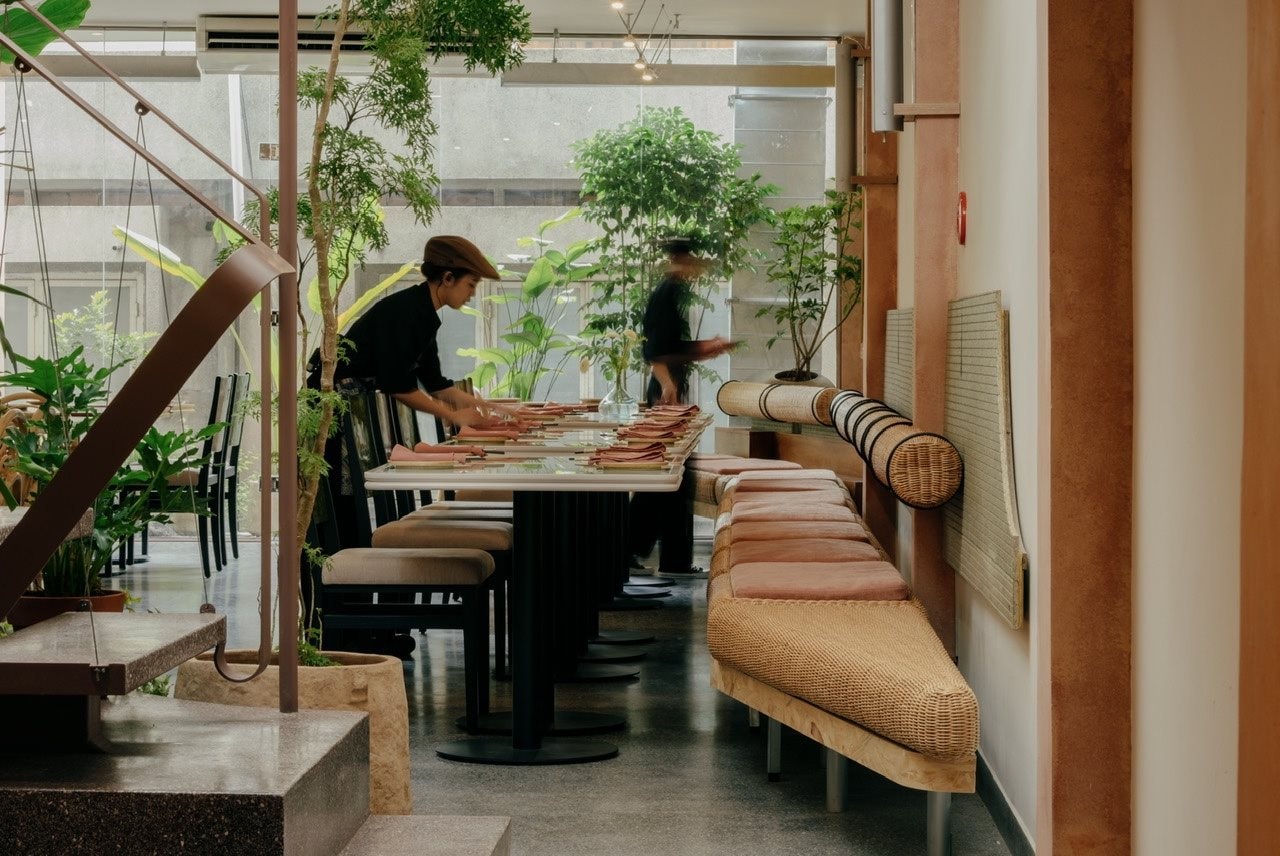
A corner of One River
She also noted the market’s excessive caution post-COVID. “People only dare to invest small amounts, focusing on daily ROI and fearing risk,” she observed. “But this mindset leads to chaotic, unaesthetic restaurant models with inconsistent hygiene standards.”
In this context, she wanted to return with a “thorough” model, focusing on storytelling, quality, R&D, and operational processes.
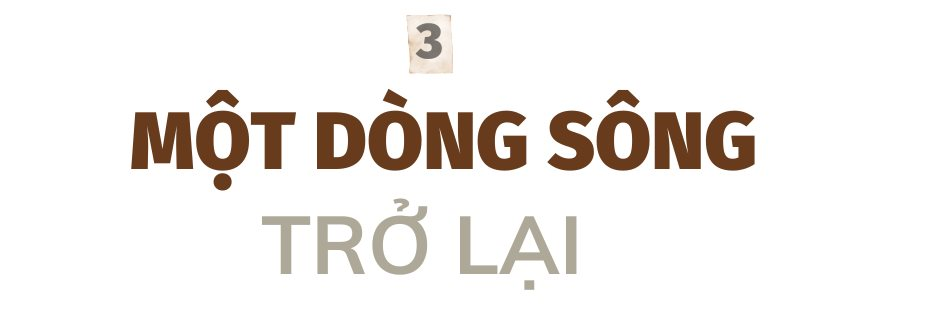
The idea for One River emerged from her travels and books about the Mekong River. “I saw how nature profoundly impacts humanity… the lower Mekong is drying up. I’ve always felt a pull toward the river, toward water.”
Two books, Prisoners of Geography and The Last Days of the Mighty Mekong, deeply influenced her. “I promised myself that if I ever returned to F&B, it would be something related to water.”
Creating Vietnamese cuisine has always been her goal, but she said, “Just Vietnamese cuisine isn’t enough to pique my curiosity.” She sought a broader, more historically and geographically rich cultural material, and the Mekong River became the foundation for her creativity.
Over three years, she traveled through Laos, Cambodia, and Vietnam’s Mekong Delta, researching local cuisine and culture. She chose the theme of “flavor confluence” as the menu’s backbone: Lao larb—”a protein-rich mix, distinct from Vietnamese salads”; three Cambodian curries—a fusion of religion and culture; and the free-spirited grilled rolls of Vietnam’s Mekong Delta.
One River’s space also mimics the river’s flow: a narrow entrance reminiscent of the Delta, a front garden, a staircase resembling a wooden boat, and a long bar serving cocktails made from tamarind and frangipani.
She sees One River as a “challenging” premium casual dining model, demanding attention to detail, aesthetics, and R&D. Each dish tells a story; every element in the kitchen, bar, and service is designed with intentionality and beauty.
One River is also her way of connecting people and cultures: “The cuisines of Laos, Cambodia, and Vietnam’s Mekong Delta share commonalities and differences. Dining here is about sharing, observing others, and experiencing the food.”
She also views the restaurant as a statement on sustainability: “We barely use plastic. Most interiors are made from recycled materials—sawdust-pressed wood or second-life wood.”
Operationally, she admits it’s a gamble. “Lunch and dinner need at least 70% table occupancy and two turnovers to break even.” But for her, financial calculations aren’t everything: “One River is about telling a deep culinary story with philosophy. Profit will come later.”
Currently, she spends about 12 hours daily at the restaurant. “At night, I dream about the dishes. I think about the staff, the issues to resolve. After five years away from F&B details, I’m restarting, but it feels joyful.”
Ten years after selling 70% of Wrap&Roll to Mekong Capital, Mrs. Oanh returns to F&B, not with a chain, but with “a single river,” diving deep rather than expanding.
KFC Officially Adds Sandwich to Menu
KFC has introduced a unique sandwich to its Australian menu, offering a fresh take on the classic sandwich with a distinct KFC twist. This new addition is set to tantalize taste buds and provide a satisfying culinary experience for customers across Australia.
T.U.N.G Dining: An Exceptional Culinary Experience Redefined
Renowned as one of Hanoi’s pioneering fine dining establishments, T.U.N.G dining has garnered both national and international acclaim since its inception.




